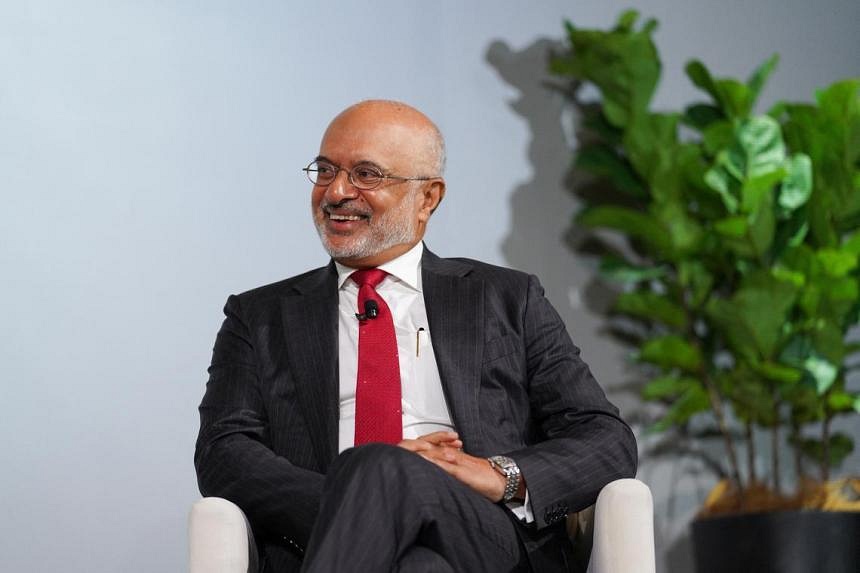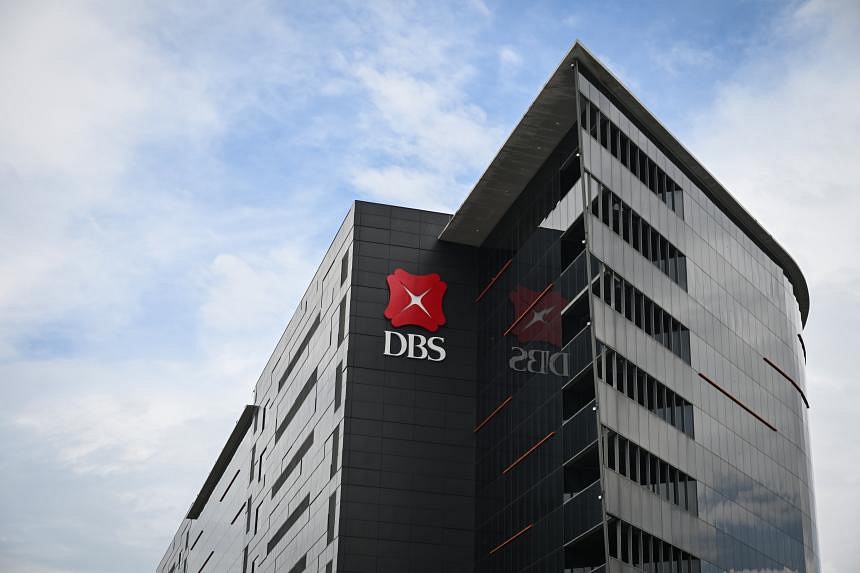SINGAPORE - Management guru Peter Drucker once said that management is doing things right. Leadership is about doing the right things.
DBS chief executive Piyush Gupta appears to have done the right things at the bank.
When he took the helm some 14 years ago, there were many sceptics, not least because DBS had previously been led by a parade of foreign CEOs with impressive international credentials but who never really managed to move the needle for the bank in terms of its business presence or growth.
This former Citibank executive came along and changed things with his own style of management and priorities.
He expanded the bank’s presence across multiple geographies, streamlined operations, prioritised businesses that mattered, and shuttered those that didn’t.
DBS transitioned from being a “people’s bank” to a bank of international repute with technology driving its transformation.
Despite some high-profile technology trip-ups and lapses in money laundering monitoring – issues that were not unique to DBS – the bank’s loan book has expanded, profits and revenues ballooned, and its global reputation grew. DBS has won multiple global accolades over the years.
One indication of the journey it has made is its stock price.
When Mr Gupta became the bank’s chief in November 2009, DBS’ stock price was about $12.
Over the years, the stock price has outperformed its local rivals, as well as the Straits Times Index and the MSCI World Financials Index, by a wide margin. Today, DBS’ stock sits at about $34, not counting dividends and splits over the years.
It would not be an understatement to say that Mr Gupta has earned a reputation for being a legend in Singapore banking.
Ms Tan Su Shan, his anointed successor who will assume the top job in March 2025, will be taking over when the bank is at a high.
She will have to deal with an array of challenges as the banking industry faces winds of change on the geopolitical, economic, trade and financial fronts.

China is in an economic slump, which is likely to last at least a few more years. Over in the United States and Europe, monetary and financial realignments will bring more uncertainty to markets.
Perhaps more critically, the impact of technology, and artificial intelligence (AI) in particular, on the banking industry is still evolving.
Under Mr Gupta, technology has played a huge role in scaling up DBS’ businesses and market presence. But the bank has also suffered a fair share of major tech failings.
Over at private banking, customer priorities are changing. A younger generation of wealthy clients, unlike their parents, reckon they are smart enough to manage their own wealth with the help of technology and AI-driven robo-advisory. How will DBS’ service model evolve to cater to a digital-driven Gen Z?
The consumer business could be the key here as affluence grows in the region.
DBS and the other two local banks, with a huge and captive base of low-cost current and savings accounts, have benefited from the US Federal Reserve’s large interest rate hikes over the past 18 months.
With interest rates poised to head down, how will this impact bank earnings? As Singapore’s largest lender, are there still opportunities for growth on this front?
Also, how will DBS continue to be a “people’s bank” in Singapore and yet expand regionally for business growth?
Recent acquisitions will require more regional outreach to attain additional growth.
Its corporate business is stable because it has a good base in corporate and institutional business in the region. Will it have to embark on more acquisitions to grow this segment?
Two main markets in South-east Asia – Malaysia and Indonesia – seem difficult to crack because DBS is seen there as a “government” bank.
But it made headway in India when it bought a bank in the south of the country. Will that vast and populous country be a game changer, like Indian telco Bharti Airtel has been for Singtel? What are DBS’ expansion plans into the rest of India, especially in the financial capital of Mumbai, the IT hub of Bangalore, and the capital city of New Delhi?
Mr Gupta’s management style and success have built a huge reservoir of goodwill and loyalty within the bank.
Can the new leadership, under Ms Tan, retain talent? Will some of his lieutenants decide to move on, now that their captain is retiring?

Ms Tan will have big shoes to fill.
While her capabilities cannot be underestimated (she has 35 years of banking experience under her belt), the market will be watching to see if she will lean heavily on momentum and organic growth, or boost mergers and acquisitions down the road.
Ms Tan will no doubt bring her own style of management to the bank and probably has a better chance of continuing and improving on a successful franchise built by Mr Gupta than most in her cohort.
DBS could have gone back to its old playbook of the previous decade and hired a foreigner with international experience and repute. But getting an outsider sometimes risks upsetting the apple cart. Someone new with no inkling of local context or history may try to stamp his or her mark by making changes that may not be necessary.
Ms Tan represents continuity. As a longstanding insider, she is perhaps better placed to take the bank’s business to greater heights without undermining Mr Gupta’s achievements.
The global economic and political landscape is already turbulent, so stability is critical. Ms Tan has proven she can do things right. The market will be watching to see whether she will also do the right things to maintain the upward trajectory of the bank, and its stock price.


